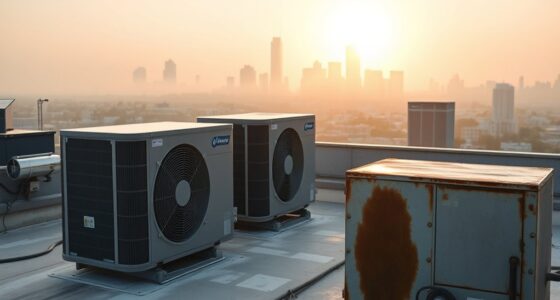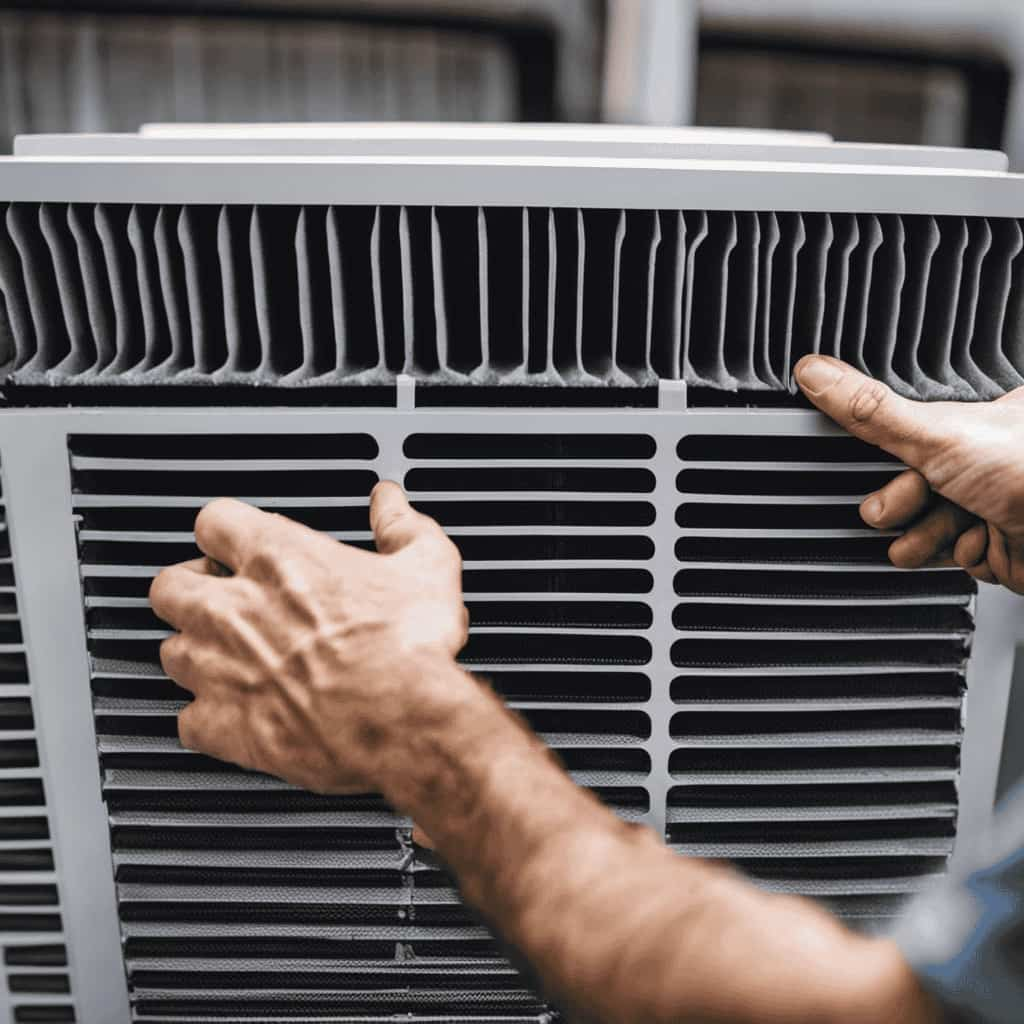
Welcome to our examination of efficiency ratings in the world of heat pumps. In this comparison, we will uncover the mysteries behind these ratings, offering you valuable insights into the effectiveness of these systems.
Join us as we explore the importance of efficiency, delve into different rating systems, and uncover the factors that influence energy efficiency.
Get ready to compare the top heat pump models and discover which one reigns supreme in the quest for optimal energy utilization.
Let the showdown begin!
Key Takeaways
- Efficiency directly impacts energy consumption and performance.
- Different efficiency rating systems like SEER and HSPF help compare heat pumps.
- Factors such as proper maintenance, insulation, and size/location affect heat pump energy efficiency.
- Understanding SEER and HSPF ratings aids in decoding energy efficiency information.
Understanding Energy Efficiency Ratings
Let’s dive into understanding energy efficiency ratings.
When it comes to determining energy savings and maximizing heat pump performance, efficiency ratings play a crucial role. These ratings provide valuable insights into how effectively a heat pump operates and how much energy it consumes.
The most common rating system used for heat pumps is the Seasonal Energy Efficiency Ratio (SEER). SEER measures the cooling efficiency of the unit, while Heating Seasonal Performance Factor (HSPF) measures its heating efficiency. The higher the SEER or HSPF rating, the more energy-efficient the heat pump is.
By choosing a heat pump with a higher rating, you can save on energy costs and reduce your environmental impact.
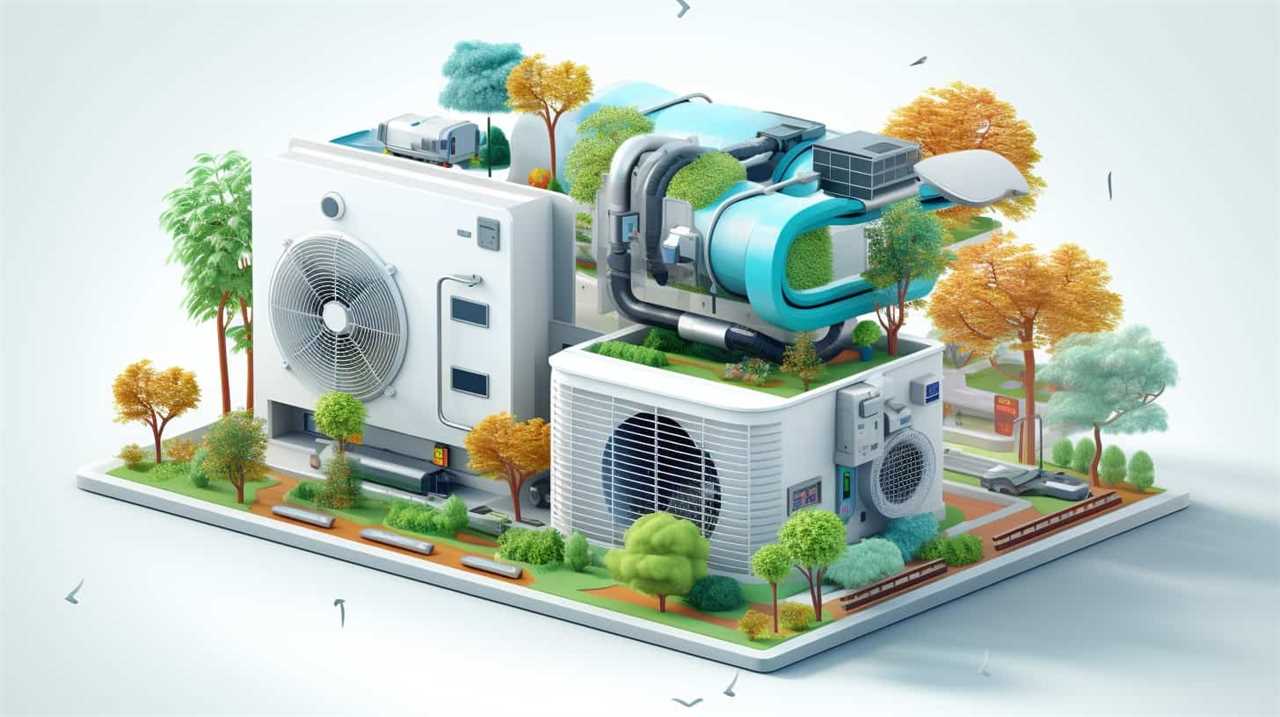
Now that we understand the importance of efficiency in heat pump models, let’s explore the different factors that contribute to their overall efficiency.
The Importance of Efficiency in Heat Pump Models
We frequently emphasize the importance of efficiency in heat pump models, as it directly impacts both energy consumption and performance. When it comes to heat pumps, efficiency is crucial for achieving significant energy savings and maximizing performance.
An efficient heat pump utilizes less energy to deliver the desired heating or cooling output, resulting in lower energy bills and reduced environmental impact. By choosing a heat pump model with high efficiency ratings, homeowners can enjoy substantial energy savings over the long term.
Additionally, efficient heat pumps are designed to maximize performance, ensuring consistent and reliable operation even in extreme weather conditions. Therefore, investing in an efficient heat pump isn’t only financially beneficial but also contributes to a more sustainable and comfortable living environment.
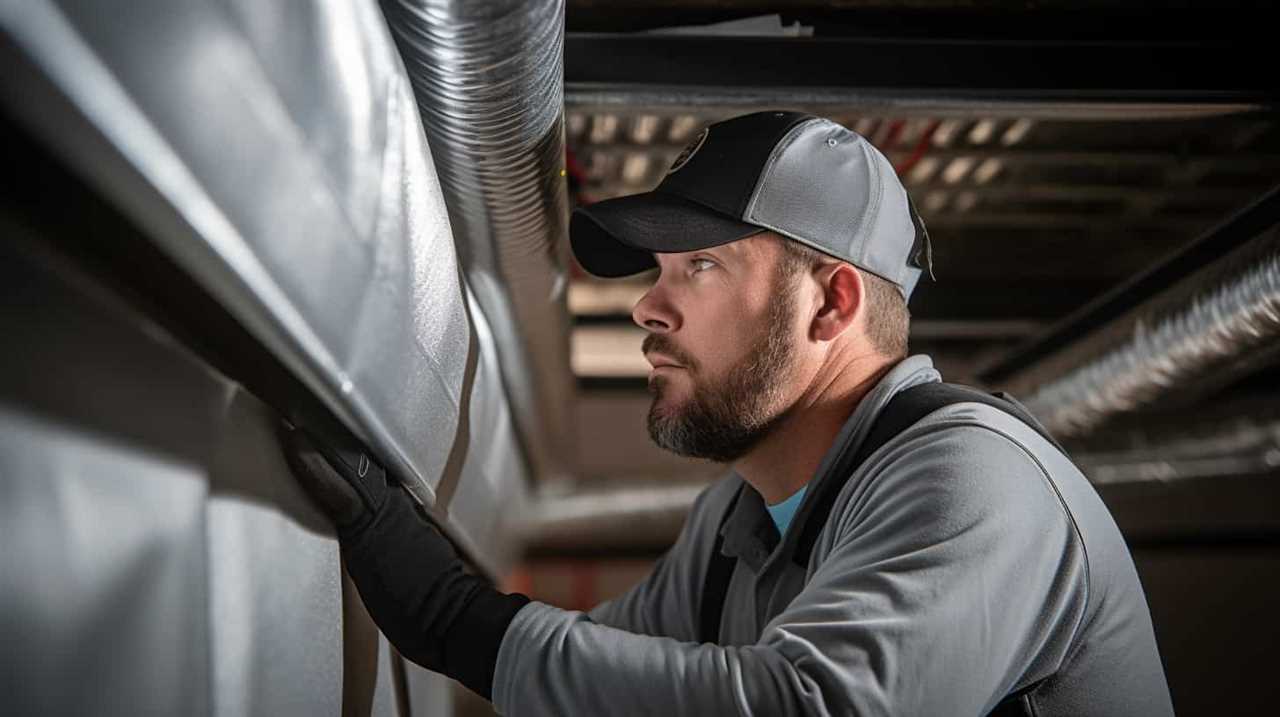
Exploring Different Efficiency Rating Systems
When evaluating heat pump efficiency, it’s important to explore different rating systems and understand how they can impact the overall performance and energy savings of the system.
The efficiency of heat pumps is often evaluated based on international efficiency standards, such as the Seasonal Energy Efficiency Ratio (SEER) and the Coefficient of Performance (COP). These rating systems provide a standardized way to compare heat pumps and make informed decisions about their efficiency.
Additionally, advancements in heat pump technology continue to push the boundaries of efficiency, with features like variable speed compressors and improved heat exchangers. These advancements promise even greater energy savings in the future.
Understanding these different efficiency rating systems and keeping up with the latest advancements will help consumers make smart choices when it comes to heat pump efficiency.

Now, let’s explore the factors that can affect heat pump energy efficiency.
Factors Affecting Heat Pump Energy Efficiency
There are several factors that can affect the energy efficiency of a heat pump. Proper heat pump maintenance plays a crucial role in optimizing energy usage. Regular maintenance includes cleaning or replacing air filters, inspecting and cleaning coils, and checking refrigerant levels.
Additionally, ensuring proper insulation and sealing of ducts can prevent energy loss. The size and location of the heat pump also impact its efficiency. A heat pump that’s too small for the space it’s intended to heat or cool will have to work harder, leading to higher energy consumption. On the other hand, a heat pump located in a shaded area or away from other heat sources will be more efficient.
By considering these factors and implementing proper maintenance practices, you can maximize the energy efficiency of your heat pump.

Now, let’s move on to comparing the energy efficiency of top heat pump models.
Comparing Energy Efficiency of Top Heat Pump Models
To accurately compare the energy efficiency of top heat pump models, it’s important to consider their respective Seasonal Energy Efficiency Ratio (SEER) and Heating Seasonal Performance Factor (HSPF) ratings.
The SEER rating measures the cooling efficiency of a heat pump, while the HSPF rating measures its heating efficiency. When comparing heat pump performance, it’s crucial to look for models with high SEER and HSPF ratings. These ratings indicate the use of energy-saving technology, which can lead to significant energy and cost savings over time.
Frequently Asked Questions
What Is the Average Cost of a Heat Pump Installation?
The average cost of a heat pump installation varies depending on factors such as the size of the unit and the complexity of the installation. It is important to consider both upfront costs and long-term energy savings when evaluating the overall cost.
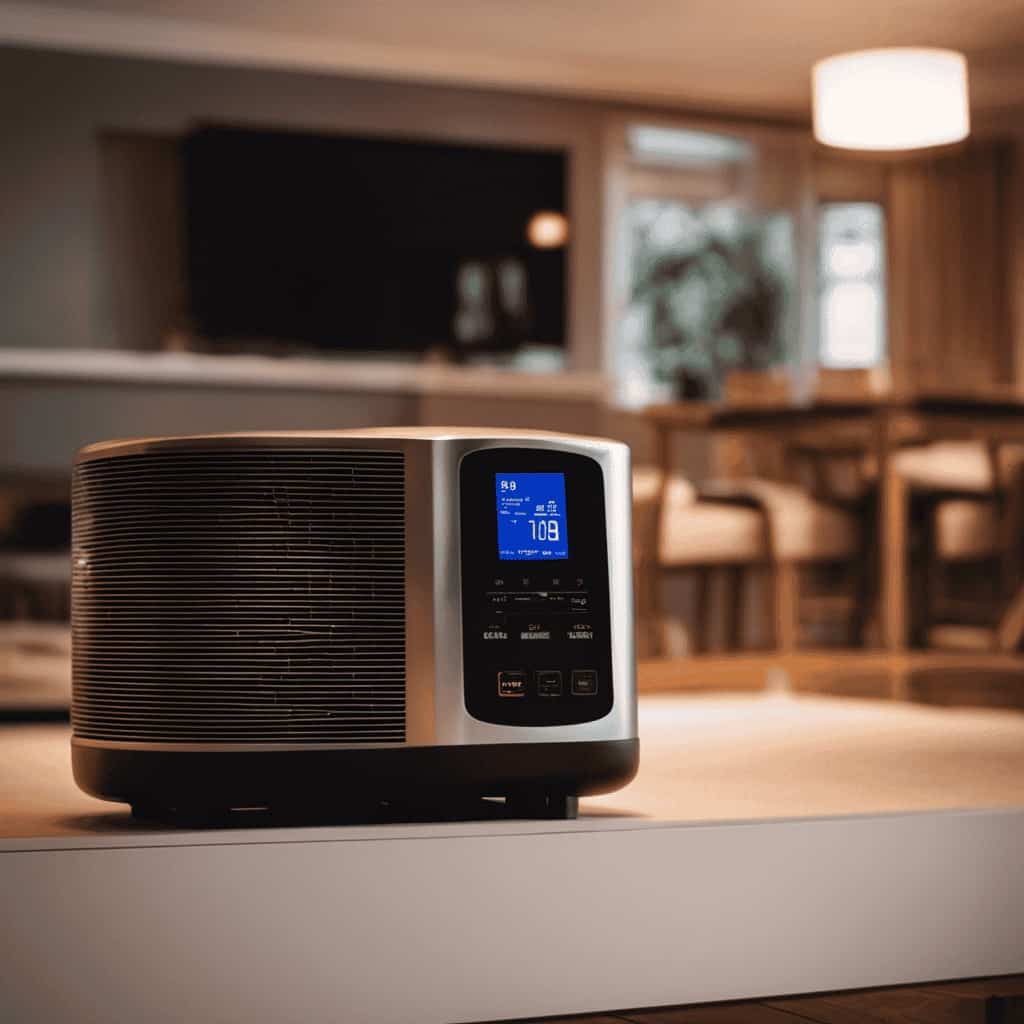
How Often Should a Heat Pump Be Serviced for Optimal Efficiency?
For optimal efficiency, heat pumps should be serviced annually. Regular maintenance increases their lifespan and ensures peak performance. To maximize efficiency, clean or replace filters regularly and keep the outdoor unit clear of debris.
Can a Heat Pump Be Used as the Sole Heating Source in Extremely Cold Climates?
A heat pump can be used as the sole heating source in extremely cold climates, but its efficiency may be reduced. Heat pump performance in extreme temperatures is affected by factors such as insulation and the size of the unit.
Are There Any Potential Health Risks Associated With Heat Pump Usage?
Potential health risks associated with heat pump usage are minimal and manageable. Regular maintenance and proper installation help mitigate any concerns. Additionally, heat pumps have a lower environmental impact compared to traditional heating systems, making them a sustainable choice.
What Is the Lifespan of a Typical Heat Pump?
The typical lifespan of a heat pump depends on various factors, including proper heat pump maintenance. Regular maintenance can extend its lifespan, ensuring optimal performance and efficiency for a longer period.
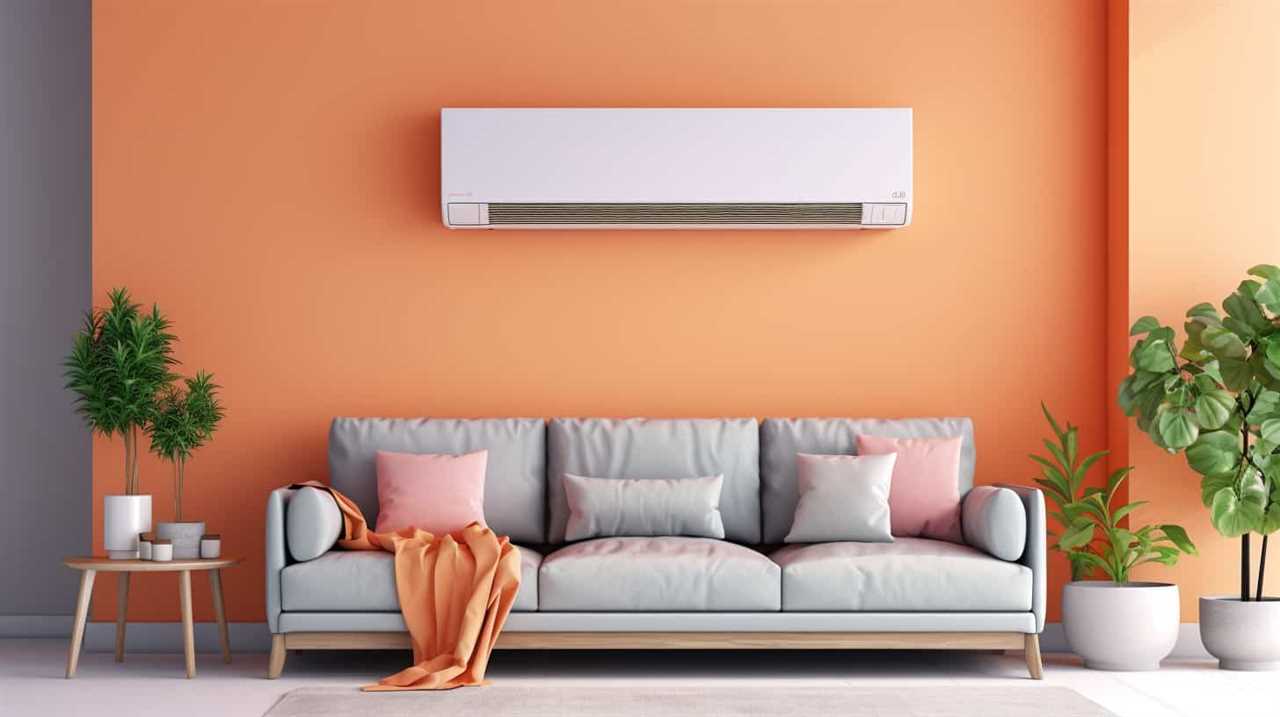
Conclusion
In conclusion, decoding efficiency ratings for heat pumps is crucial in selecting the most efficient model. Understanding and comparing different efficiency rating systems can help homeowners make informed decisions.
Factors such as insulation, climate, and size of the home greatly impact the energy efficiency of heat pumps. Like a well-oiled machine, a highly efficient heat pump operates seamlessly, maximizing energy usage while minimizing waste, just like a precision instrument in a symphony orchestra.




